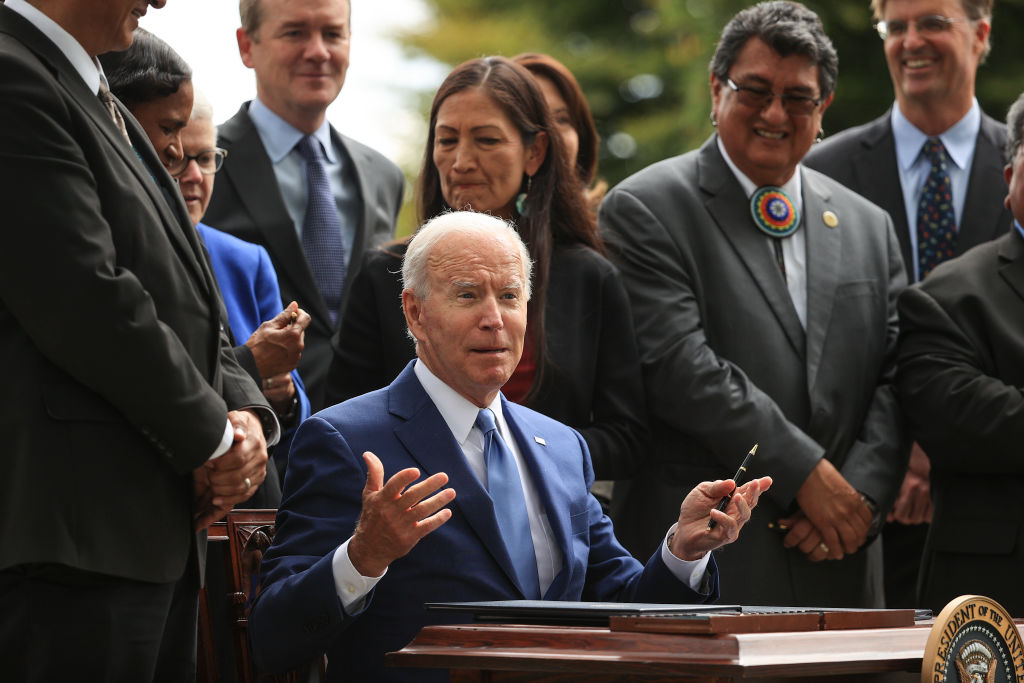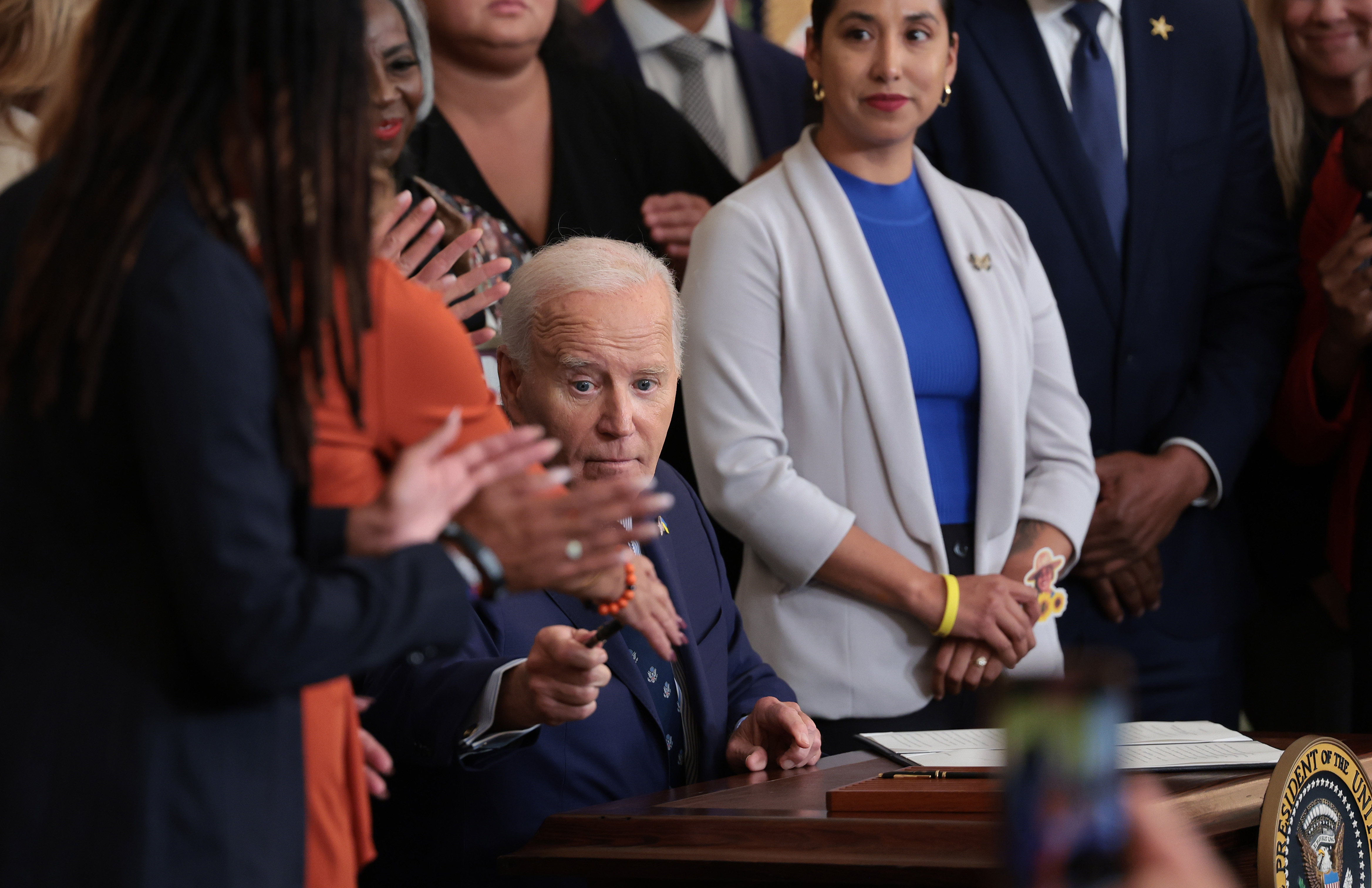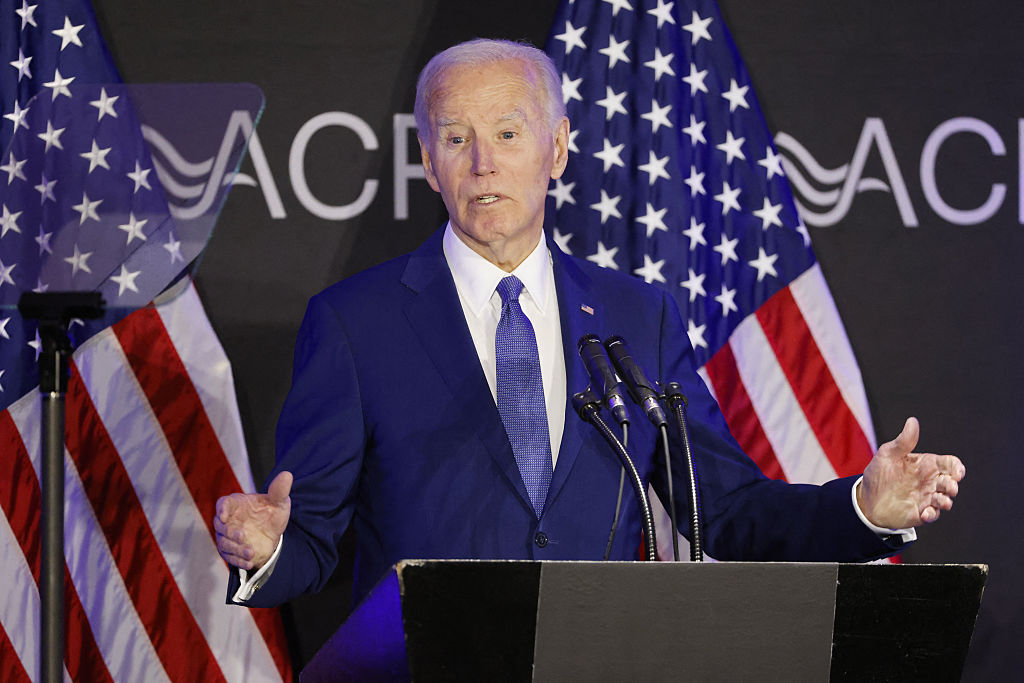The Biden administration has found itself between a rock and a hard seam of coal. A cohort of Native American tribes have realized just how sacred — and lucrative — their lands really are, and they’re not trusting the promises of an old white man this time.
“When the administration says, ‘We’re going to create all these millions of jobs if we just switched over [to renewable energy] today,’ they haven’t shown us the fine print that says where those jobs are coming, which region, doing what,” Daniel Cardenas, chairman of the National Tribal Energy Association and member of the Pit River Tribe, told Fox News Digital in an interview. “When you start questioning them there, then they start getting defensive.”
Native American land has an abundance of untapped fossil fuel resources worth at least $1.5 trillion (as of 2014), and many who live on these lands have come to rely on these resources to sustain their communities. Yet according to Fox, the Department of the Interior “has repeatedly expressed support for boosting tribal sovereignty for Indigenous tribes, but has also pursued a climate agenda limiting fossil fuel production on federal lands and waters.”
Contradictions abound and the debate is a curious one. On one hand, you have those like Conrad Stewart, director of energy and water for the Crow Nation of Montana, proclaiming to Fox that “A war on coal is a war on Crow.”
But there’s another set of Native people who “reject the proposition that our traditional lands should be sacrificed at the altar of irresponsible energy policies” and equate the extraction of fossil fuels on native lands to “exploitation.” A 2018 article in Scientific American profiled a group of “Indigenous people… rejecting oil, coal and gas extraction in favor of renewable energy to save their land, increase employment and fight global warming.” And a Harvard panel of public health “experts” went so far as to claim earlier this year that “fossil fuel extraction is harming Indigenous communities,” linking cases of cancer and other health problems to “growing up and living near oil and gas operations.”
One of the Harvard panelists noted that “such activism by Indigenous people has been successful in the past,” citing a campaign his late father had led to end gold mining in the Little Rocky Mountains in Montana in the 1990s.
But can the notoriously poor Native Americans afford to reject fossil fuel extraction? And can the rest of the country afford to let them?
Consider that, according to the Indigenous Environmental Network, “Indian reservations hold more than 35 percent of America’s fossil fuel resources” — that’s billions of tons of coal, billions of barrels of oil, and trillions of cubic feet of natural gas, reports Energy Central.
Also consider how much $1.5 trillion could do to boost Native American tribes. “Air, water and energy are so foundational to our economy. I believe in the right that all property owners have to develop what belongs to them in any way that they want,” Cardenas said.
Many Native American tribes — like many non-Indians, too — don’t want to rely on the government and are tired of bureaucratic red tape obstructing progress that could benefit everyone.
In Montana, for instance, “The Crow [Nation’s] main source of income is the forty-three-year-old Absaloka Mine in Hardin,” reported CQ Press in 2017. “The tribe for the past several years has pushed to open a second mine that could produce 1.4 billion tons of coal and generate $10 million for the tribe in five years.”
Yet according to CQ, “the tribe’s attempts to open the new mine have been stymied in part by federal land-use and environmental rules that the tribal government says tread on its sovereignty.”
Former Crow tribal chairman Darrin Old Coyote told the publication at the time, “I don’t want to be dependent on the US government. We have the resources, we have the manpower, we have the capability of being self-sufficient.”
“Noting that the tribe’s unemployment rate ranges between 25 percent and 50 percent,” the article continues, “[Old Coyote] added, ‘There’s no reason why we should be this poor.’”
In fact, when, on day one of his term, President Biden signed an executive order to pause federal oil and gas leasing and drilling permits, the Ute Indian Tribe, which Reuters reports “produces about 45,000 barrels of crude oil per day…along with about 900 million cubic feet per day of natural gas,” asked for and was granted an exemption to the rule (how’s that for Biden “eating Crow!”). The Tribe told the DoI at the time, “The Ute Indian Tribe and other energy producing tribes rely on energy development to fund our governments and provide services to our members.”
The Biden administration thus faces quite the conundrum. They claim they are committed to making Native Americans more autonomous, but then make Native American sovereignty contingent on doing what they want, i.e., abandoning fossil fuel production in favor of so-called green energy. Many poverty-stricken tribes understand how impossible achieving sovereignty is when their ability to profit from their immense natural resources is regulated so heavily.
Yet in granting Indigenous peoples the ability to access fossil fuels more easily, the Biden administration has been forced to abandon their “plan for a clean energy revolution and environmental justice.” This is a tough pill to swallow, given that climate change is, according to the administration, “the greatest threat facing our country and our world.”
“Sounds like a Ute problem, Joe,” as the kids might say. It does look, however, that regardless of what Biden does, the GOP is on its way to winning over yet another demographic of historically strong Democratic voters.

























